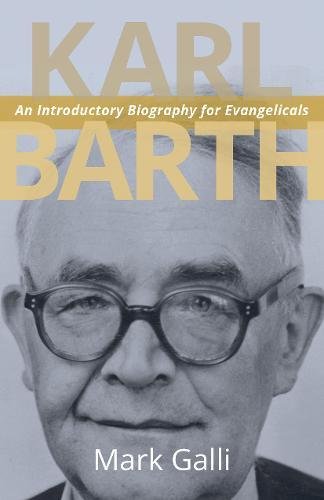Q. It is interesting that Barth was indebted to Anselm’s ‘fides quarens intellectum’ approach to Christian theology. And then there is his insistence that we can know nothing of God unless God reveals himself to us. Anselm would agree, but would add that God didn’t just reveal himself in his Word, though that is paramount, particularly if you mean by Word the living Word=Christ. God also revealed himself in creation, though in the end that revelation doesn’t save or transform fallen humanity. Hence Barth says dogmatics begins with an act of faith, trust that God has revealed himself in Christ. But what exactly does Barth mean by faith? It is one thing to say that faith is a gift from God. It is another thing to ignore that ‘faith’ from Abraham to Paul and beyond basically means trusting God. That is, it refers not to the capacity to receive the gift of faith, but what you do with that gift— the active human trusting of God, which God reckons as righteousness. Why is Barth so resistant to having a more fulsome understanding of the whole spectrum of what pistis means in the NT, or is this an unfair critique of him?
A. He actually talks about the various meanings of faith in the New Testament, but clearly his emphasis is on faith as acknowledgment of the reality of the relationship of God to us. That is, it is a recognition of the startling reality that God has reconciled us to himself in Christ. Faith is not something we work up to change God’s attitude toward us; it merely recognizes the gracious reality that we now live in. That to Barth is saving faith.
But he also talks about what faith means in other contexts, like those passages where Christ says that the faith of the recipient of a miracle is what has made the miracle possible. So he recognizes the other ways the word works. But he wants to emphasize the above understanding in order to make clear that salvation is God’s work.
Q. “The Bible is God’s Word to the extent that God causes it to be his Holy Word, to the extent he speaks through it…. The Bible becomes God’s Word.” In itself the Bible is just human words about God. It doesn’t become God’s Word by reading it in faith, but by God, top down, in the person of the Holy Spirit making it revelation for us. Why is he so resistant to the notion that God speaks ‘in’ the words of Scripture and not just ‘through them’? Or do you think his later clarifications after Vol. 1 of the Dogmatics make clear that he sees the revelation in the words of the human writers of Scripture as well so it is as though those writers are living and speaking directly to us? But at the same time he wants to say— not all the words since there are historical, scientific and theological errors in the Bible according to Barth, while at the same time constantly treating all 15,000 citations of the Bible in his Dogmatics as if it were a trustworthy and reliable word from God, as you say, never dismissing a passage as ‘in error’. And further he says the Bible has the final say over the church and theology. Is this more examples of dialectical or paradoxical thinking? I take the point that the Bible is a dynamic book. But is it the book that is inherently dynamic, or only the use by God of it in preaching, teaching etc.?
A. Barth does not have the same confidence in Scripture as Scripture as do evangelicals. He’s concerned that we’ll equate the inerrancy of the Bible with God’s inerrancy–idolatry. He’s concerned that we might make the Bible a mere holy object, something magical we can turn to in order to find wisdom or direction. He’s concerned to preserve the miracle that God used fallible human beings to communicate his Word. He’s concerned that we’ll speak as if there are two Words, the Word of God as text, and the Word of God as a person; Barth wants to bring those together as much as possible. I think, however, that in pursuing these worthy goals, he oversteps and leaves people unsure of the Bible—at least in his formal doctrine of the Bible. As you noted, the way he actually uses the Bible actually brings great confidence in it.













